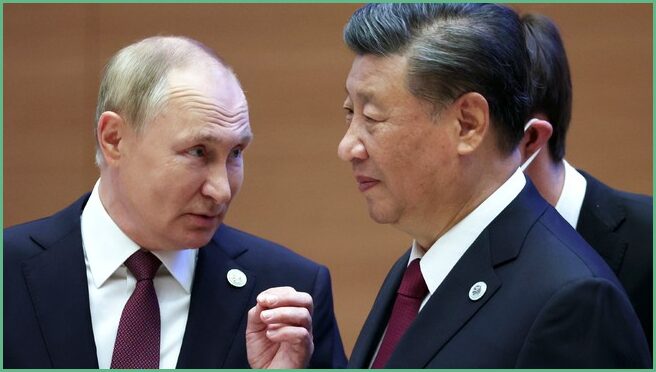China’s moves are not subtle. From buying influence to embedding capabilities on our soil, the pattern points to something far more dangerous than routine competition. For Republicans watching this from the right, the conclusion is grim: Beijing is preparing options for decisive action against the United States.
The Biden years saw a dangerous lull in American strategic firmness that Beijing exploited. Beijing used money and influence campaigns in the Pacific and elsewhere to gain strategic footholds while Washington dithers. That handoff of advantage was not accidental; it was an opening China moved quickly to exploit.
Chinese influence in the Western Pacific is textbook pre-positioning. Buying off local elites, negotiating defense agreements under the radar, and arranging for troop access to distant islands gives Beijing reach and denial options. Those arrangements matter when you think about basing and logistics in any future crisis.
At the same time, we watched a troubling flow of military-aged men cross our southern border. Their uniformity, haircuts, and gear stood out in the videos and pictures released by smugglers and observers. Whether they were migrants, students, or part of a directed operation, the consequence is the same: people on our soil who shouldn’t be there and who could be co-opted for hostile tasks.
Chinese entities quietly buying U.S. farmland near strategic installations is not a theory; it’s happening. Farmland around bomber bases, missile silos, and other strategic nodes has changed hands to foreign buyers with ties to Beijing. Call it strategic shopping — buying geography and influence right next to the things that matter most to national defense.
We have also seen an explosion of Chinese-made infrastructure in U.S. energy and telecom projects. Solar projects, communications gear, and other critical components built under the influence of Beijing create dependencies and potential vulnerabilities. When the chips, software, and supply chains are controlled by unfriendly actors, resilience becomes fiction.
Cyber activity and clandestine telecom threats have followed. SIM farms capable of blasting millions of texts a minute and other supply-chain compromises are the kind of asymmetric tools a determined adversary would use to degrade our systems fast. If a nation wants to sow chaos early in a conflict, it will hit comms, logistics, and command and control — exactly the things being probed now.
We should be candid: while the government uses the phrase “nation-state actor,” in practice, few have the scale and reach to mount the campaigns we’ve seen. That narrows the suspect list. For Republicans, this is not the moment for wishful thinking about ambiguity; it is time to name the threat and act on it.
One of the more alarming developments is a network that appears to be training and placing long-haul truck drivers with questionable backgrounds. The prospect of semi-trailers being used to move illicit cargo, hide weapons, or deploy drones and other systems is not hypothetical. We only have to look at recent ground attacks in other theaters to see how mobile concealment can be weaponized.
You may not have heard of The Chinese American Trucker Organization USA, Inc. (CATOU). They are a nonprofit, New York-based trade organization that is purported to have assisted over 1,000 would-be Chinese truck drivers obtain commercial driver’s licences (CDL), and according to business filings, social media posts, and a scant website, claims to have a 100 percent passing rate. A man who crossed over the southern border posted videos on social media showing how he was able to take courses taught by CATOU instructors and obtain a California CDL.
A thousand drivers with unclear vetting is a serious national security question, not just an immigration one. Trucks are how we move everything across this country; compromised trucking networks equal compromised logistics in a crisis. If those networks are penetrated, the military and economy become vulnerable in short order.
History gives us reason to be nervous. When other great powers prepared for war, they cached supplies and placed assets forward in ways that looked innocuous until they were needed. Weapons caches, hidden logistics, and buried capabilities were standard practice in past eras and would be equally useful today. Dismissing this as paranoia ignores the playbook aggressive powers have used for decades.
Consider the vulnerability of our intel posture as well. Reports that our human intelligence has been degraded in regions that matter mean we are often reacting, not shaping. A defensive strategy that ignores this and focuses elsewhere is a recipe for strategic surprise.
So what’s the sensible Republican response? First, harden the homeland: vetting, secure supply chains, and scrutiny of land and infrastructure purchases must increase immediately. Second, reorient defense planning to treat China as the pacing threat and ensure our deterrent posture matches the scale of the challenge.
Third, reassert immigration control as national security policy — not charity. Borders are not optional when hostile actors are probing for weak spots to exploit, and our political leaders should stop treating enforcement as a partisan afterthought.
Finally, Congress and the next administration must fund and prioritize HUMINT, cyber defenses, and targeted sanctions against entities that act as Beijing’s proxies. This is not abstract geopolitics; it is the practical work of deterring a power that has shown it will use every lever it can to undercut American security.
